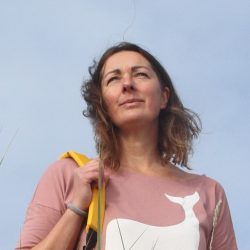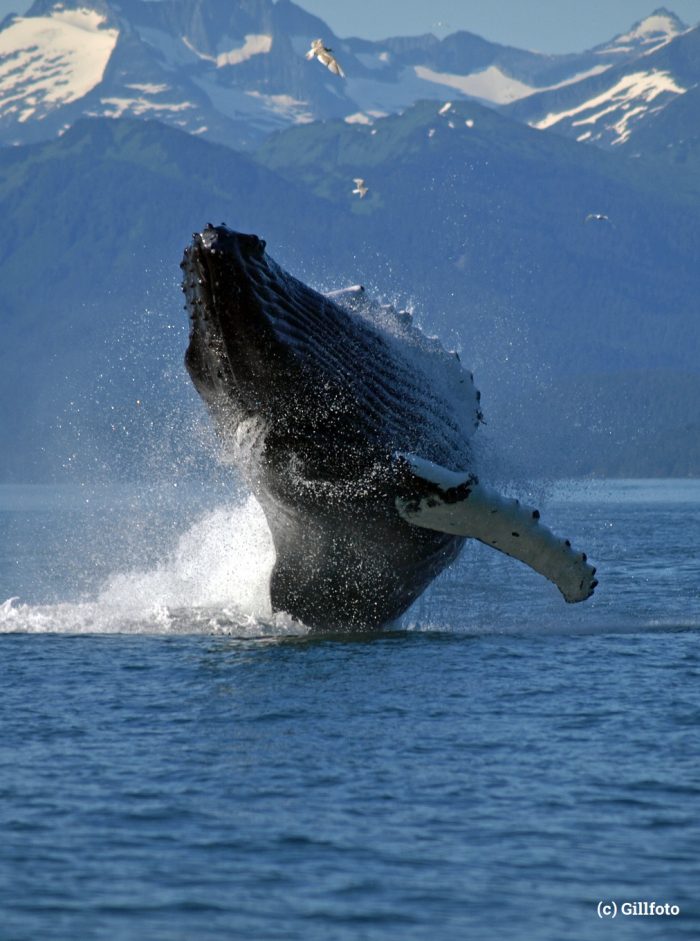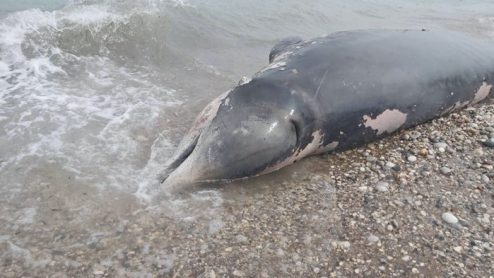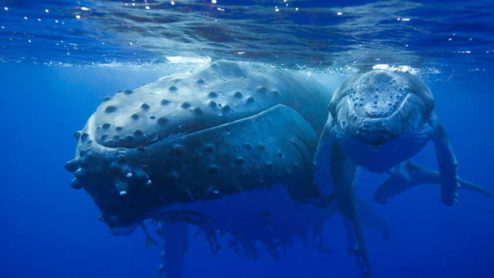IWC68: The good, the bad and the pro-whaling walk-out to scupper a sanctuary for whales
The biennial meeting of the International Whaling Commission (IWC68) has ended with good news and bad news for whales and dolphins.
I was proud to participate in IWC68. Delegates to the meeting were warmly welcomed for the third time by the Government of Slovenia and the people of Portorož and Piran.
IWC68 had been postponed for two years in a row and it was good to meet in person again after four years.
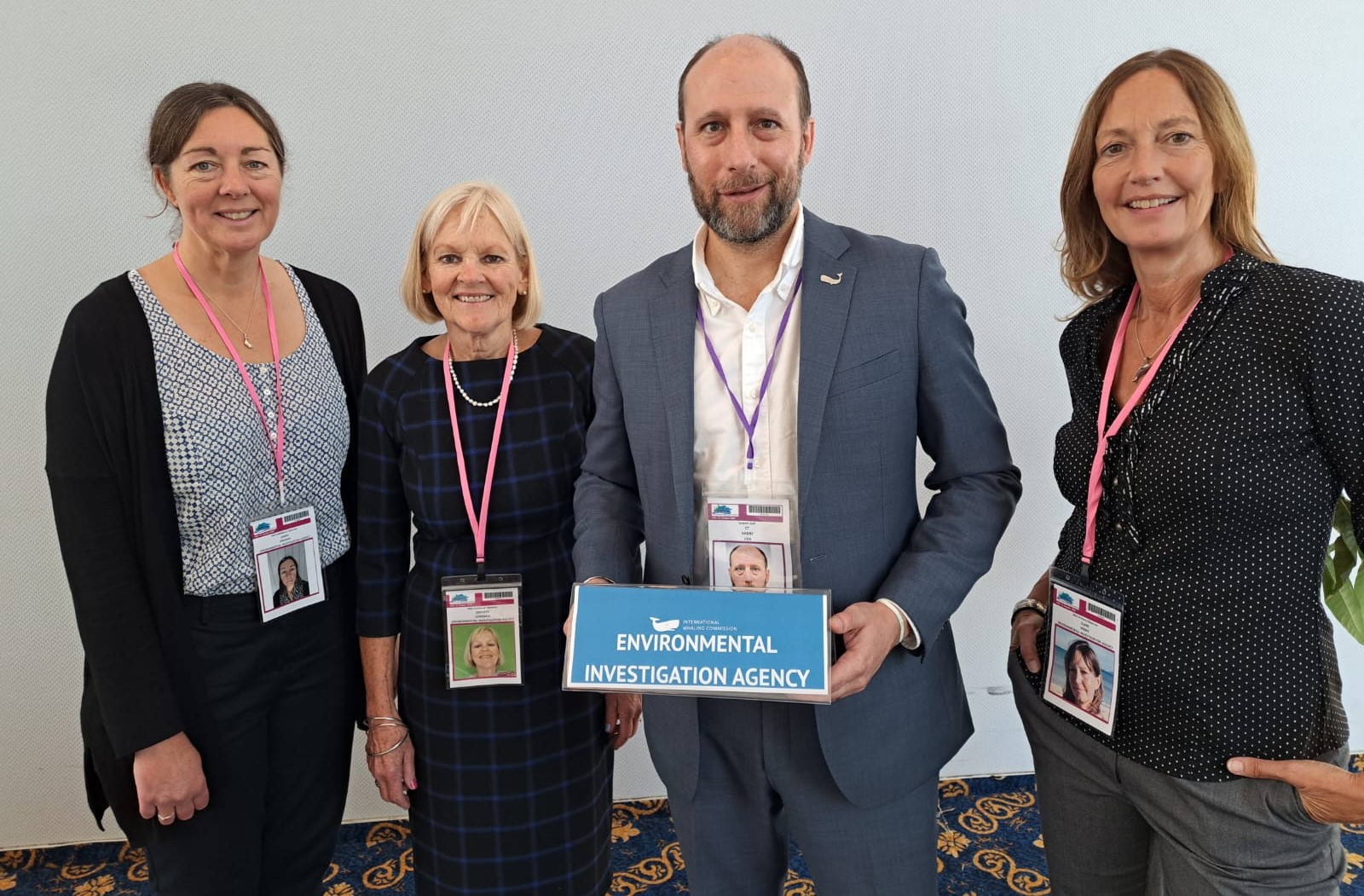
The EIA team at the IWC – left to right, Sarah Dolman, Jennifer Lonsdale, CT Harry from EIA US and Clare Perry
Some difficult matters were on the agenda last week and it was anticipated that discussions and negotiations may be challenging. While there were disappointments emerging from the meeting, we celebrated the 40-year international ban on commercial whaling remaining in place and continuing to be one of the world’s most important conservation and welfare measures. Iceland, Japan and Norway and their pro-whaling supporters have repeatedly put pressure on the IWC to allow the resumption of IWC-endorsed commercial whaling.
We are delighted that the EU’s proposed Resolution on Marine Plastic Pollution was adopted by consensus and offer sincere thanks and huge congratulations to the EU and co-proponents Korea, Panama, the UK and US. This was a highlight of the meeting and confirms that plastic pollution and its impacts on cetaceans and marine habitats are a priority concern for the IWC.
The IWC will work with international organisations to understand, prevent and mitigate the impacts of plastic pollution, for example, by encouraging joint work on the marking of fishing gear that leads to cetacean entanglement, compiling reports of plastic ingestion in stranded cetaceans and engaging on marine plastic mapping within important marine mammal areas.
The IWC will now engage with the UN in pursuit of a global treaty to tackle plastic pollution and it is our hope that adoption of this Resolution will significantly contribute to preventing entanglement and ingestion of plastic materials that lead to suffering and death of so many cetaceans.
Throughout the meeting, discussion took place on the IWC’s remarkable broad programme of work to address conservation and welfare threats to cetaceans – the collective term for whales, dolphins and porpoises – which are driving some of the most threatened populations to the edge of extinction.
On a darker note, and in an act that defied multilateral diplomacy, the dominant matter during the meeting was the walk-out of pro-whaling nations on the penultimate day of Plenary session in order to prevent a vote on the establishment of a South Atlantic Whale Sanctuary.
The Sanctuary proposal was first tabled more than 20 years ago and required a three-quarters majority to be adopted. It looked likely that there were enough parties attending the meeting for the proposal to finally be adopted – but the deliberate absence of those parties opposing the creation of the sanctuary left the Chair having to rule that there was no quorum in the room and so discussion and decision-making could not proceed.
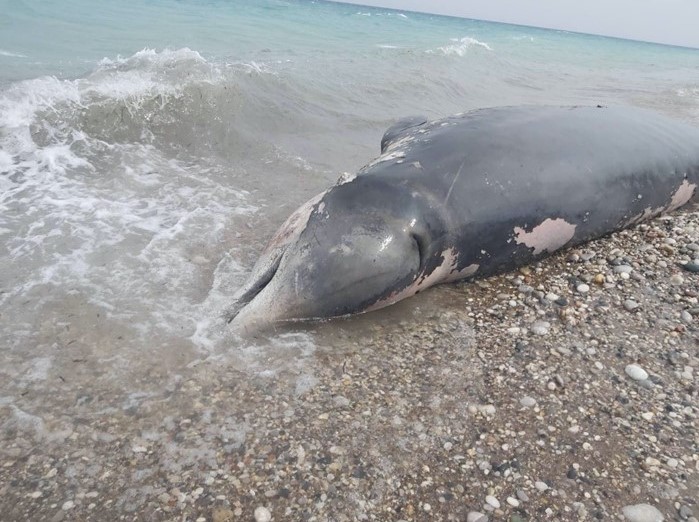
A rare Cuvier’s beaked whale, stranded dead at Kremasti, Rhodes in April 2022, was found to have ingested about 15kg of plastics (c) ARION
No whaling occurs within the South Atlantic region. This short-sighted and defiant move by pro-whaling countries only prevents opportunities to bring much-needed research funding to countries in the South Atlantic regions of Latin America and West Africa to improve understanding of cetaceans and management measures to provide greater protection for them.
It has been agreed that during the intersessional period leading up to IWC69 – to be held in Lima, Peru in 2024 – the rules relating to quorum will be reviewed for discussion at the start of IWC69.
Difficult budget discussions also took place, reflecting the financial challenges faced by both the IWC and by parties to it (known as Contracting Governments). The good news is that the budget was adopted, but unfortunately the agreed budget will have far-reaching implications for the future work of the IWC, with cuts to the Secretariat, a reduction in the length of IWC meetings and a move to biennial Scientific Committee meetings from 2025, among other things. This is regrettable and we urge Contracting Governments to seek ways to increase financial support to the IWC in future.
Presentations were made on the excellent and wide-ranging work of both the Scientific and the Conservation committees during the past four years since the IWC last met in person. Reports from workshops were summarised on priority issues faced by cetaceans today, including climate change and the socio-economic role of whales in ecosystem functioning. An updated version of the Whale Watching Handbook was also presented.
We sincerely thank Slovenia’s IWC Commissioner Andrej Bibić as he steps down as Chair of the Commission. As a consequence of the pandemic, he served for four years instead of two and guided the IWC forward during this very difficult time. We welcome the new Chair, Amadou Telivel Diallo, Commissioner for the Republic of Guinea, and new Vice Chair Nick Gales, Commissioner for Australia.
Several excellent Chairs of committees and working groups stepped down. In particular, we acknowledge the important work of Robert Suydam, Lorenzo Rojas Bracho and Stephanie Langerock. New Chairs were welcomed and we look forward to continuing to work with them and all IWC Contracting Governments and participants in its vital work.
We also thank the enduring work of IWC Executive Secretary Dr Rebecca Lent and the Secretariat Staff who work so hard to ensure the work of the IWC continues and the biennial meetings run smoothly. The IWC’s work would be impossible without them.


